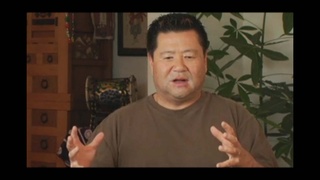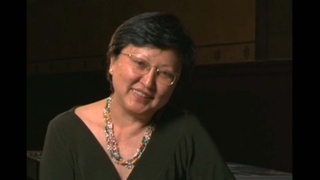Interviews
Disadvantages of looking Japanese
All the verbal etiquette, the mannerisms in Japan, which is a lot compared to different countries—I had no idea what they were. I didn’t know I shouldn’t drink before the elders. You know, we sit down with some company president, and we get our drinks. He doesn’t get his drink yet, and I’m sipping mine. I didn’t know I couldn’t do that. Before you eat, “itadaki-masu.” After you eat, “Gochisou-sama.” I didn’t know those words.
The problem with that was me looking Japanese. I was expected to know all that. If I had blue eyes, blond hair, and I didn’t do that, “This foreigner, this gaijin doesn’t know the mannerisms here.” Because I looked so Japanese, I was portrayed as a rude Japanese, in a way, for the people who didn’t know who I was.
You see me at a restaurant with a president that really doesn’t know me that much. I’m sitting with the president of the English school, just coming with him. So I’m not really introduced like that. And I’m there just sitting down drinking my juice, and he doesn’t even have his. It’s not a good impression. So I had lot of problems with that—everyone thinking that I knew the language, everyone thinking that I should speak.
I got stopped once on the rode with police, and he asked me for my license in Japanese, which I didn’t understand that time because I just came [here]. I looked and said, “I don’t know what you’re talking about.” I’m giving him the registration, which usually people ask first the registration. And he’s asking for my license. And you know, I told him in my broken Japanese that “I don’t understand what you’re saying. I’m not Japanese.” And he got pissed at me, and it got really bad that situation. You know, he actually had to apologize later because I was a foreigner. I really didn’t understand what he was saying.
So there’s a lot of prejudice in Japan to foreigners. And lo and behold, I was considered a foreigner when I got here.
Date: October 14, 2003
Location: Saitama, Japan
Interviewer: Art Nomura
Contributed by: Art Nomura, Finding Home.
Explore More Videos


Advantages of being Nikkei (Spanish)
(b. 1950) Nisei Chilean, Businessman


Childhood shame for being Nikkei in Enumclaw, Washington
Judge, only Japanese American to serve on CWRIC.

On the Impact of the Camp Experience
(b. 1942) The first Asian American woman judge

Thoughts on the term, "Nikkei"
(b. 1949) Musician and arts educator and adminstrator.

Post-redress future of Japanese Americans
Judge, only Japanese American to serve on CWRIC.



Need generational change in Japanese community (Spanish)
(1925-2014) La Plata Hochi, Journalist


Defining the term "Nikkei" (Portuguese)
Former Director, Museu Histórico da Imigração Japonesa no Brasil

Brazilian of Japanese descents (Portuguese)
Former Director, Museu Histórico da Imigração Japonesa no Brasil

Nikkei community concentrated in São Paulo (Portuguese)
Former Director, Museu Histórico da Imigração Japonesa no Brasil

Changing life styles of successive generations (Portuguese)
Former Director, Museu Histórico da Imigração Japonesa no Brasil
